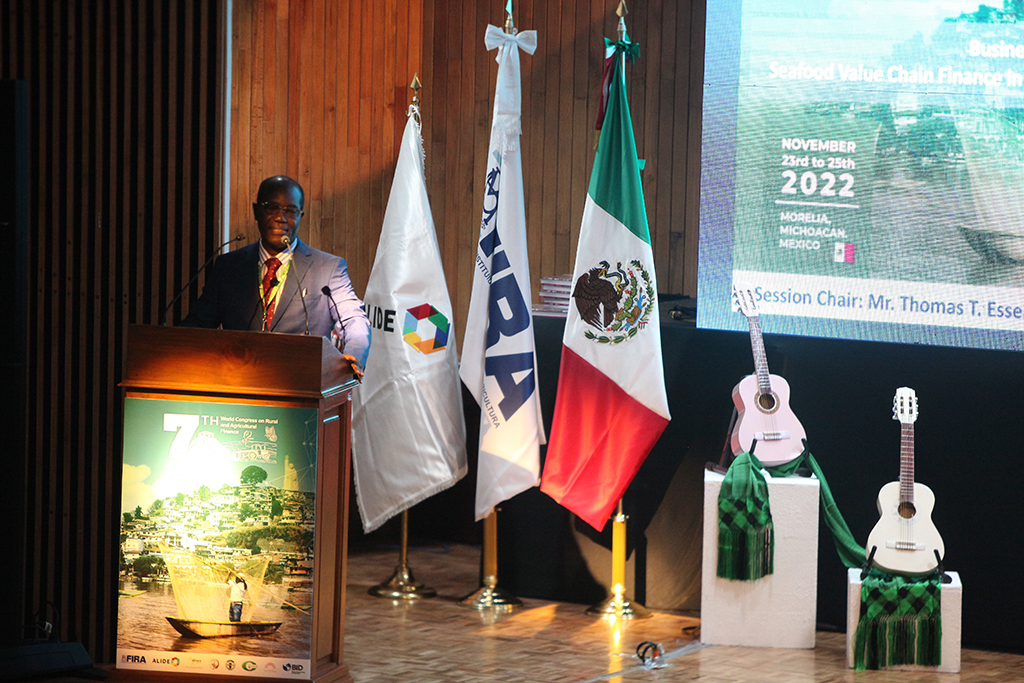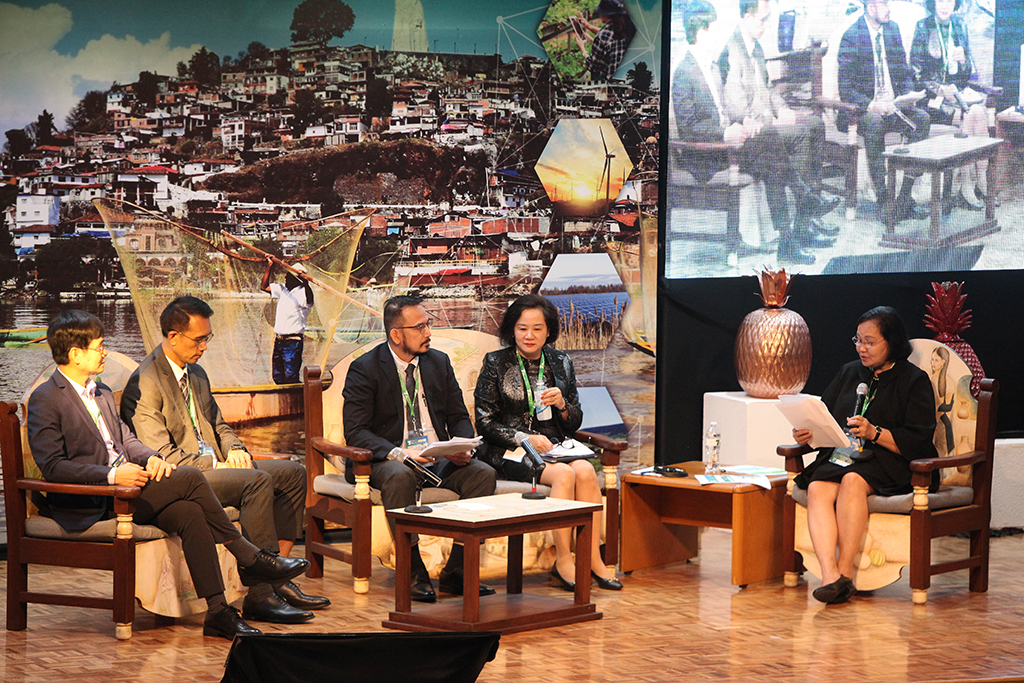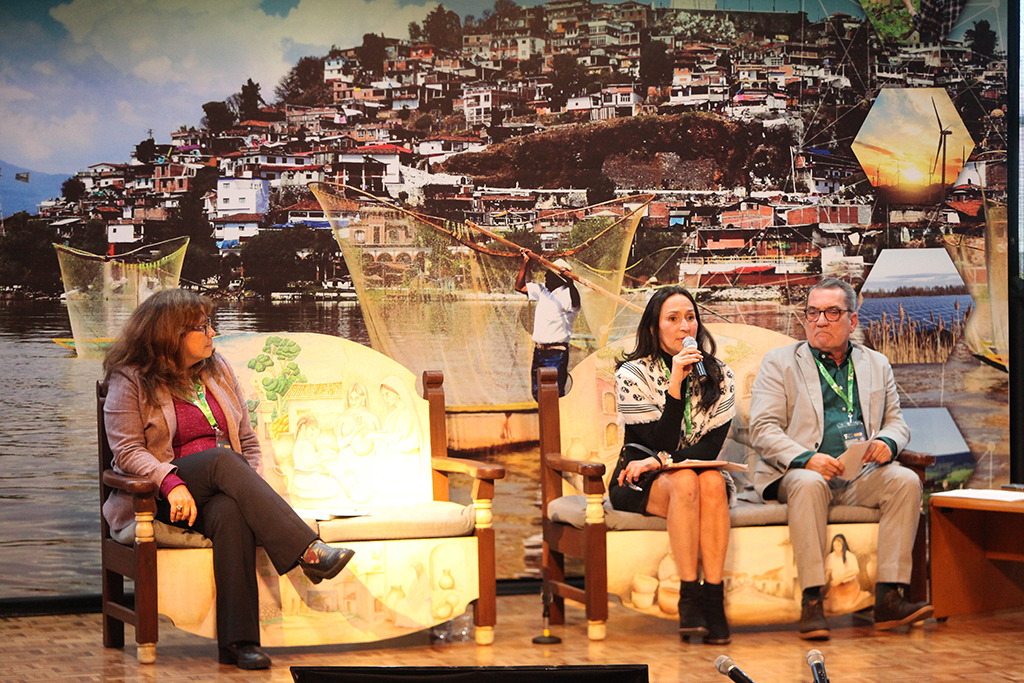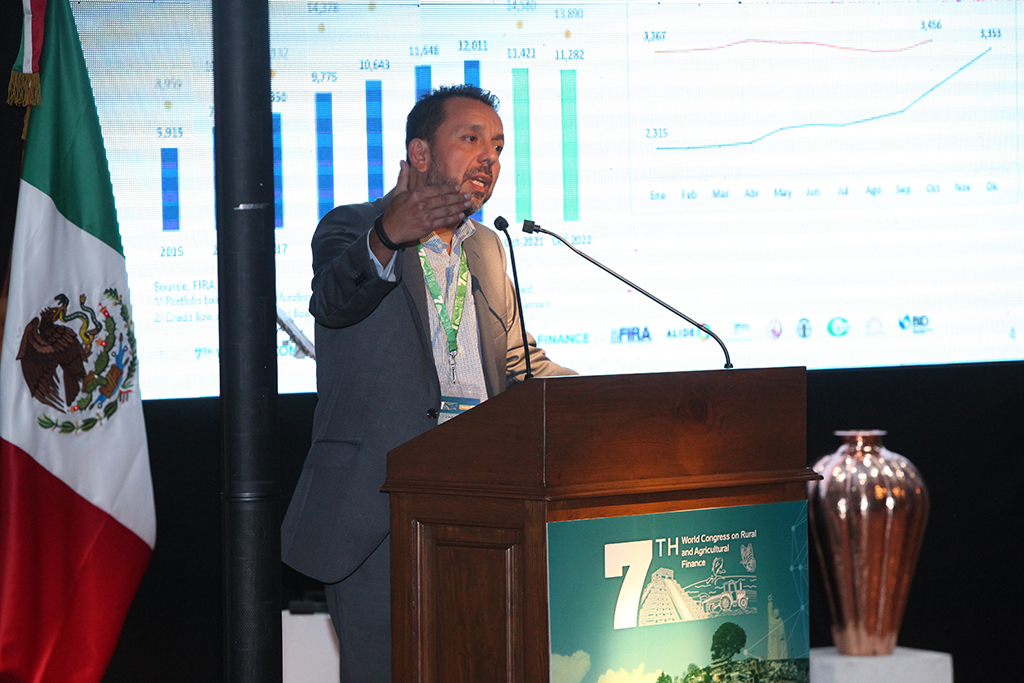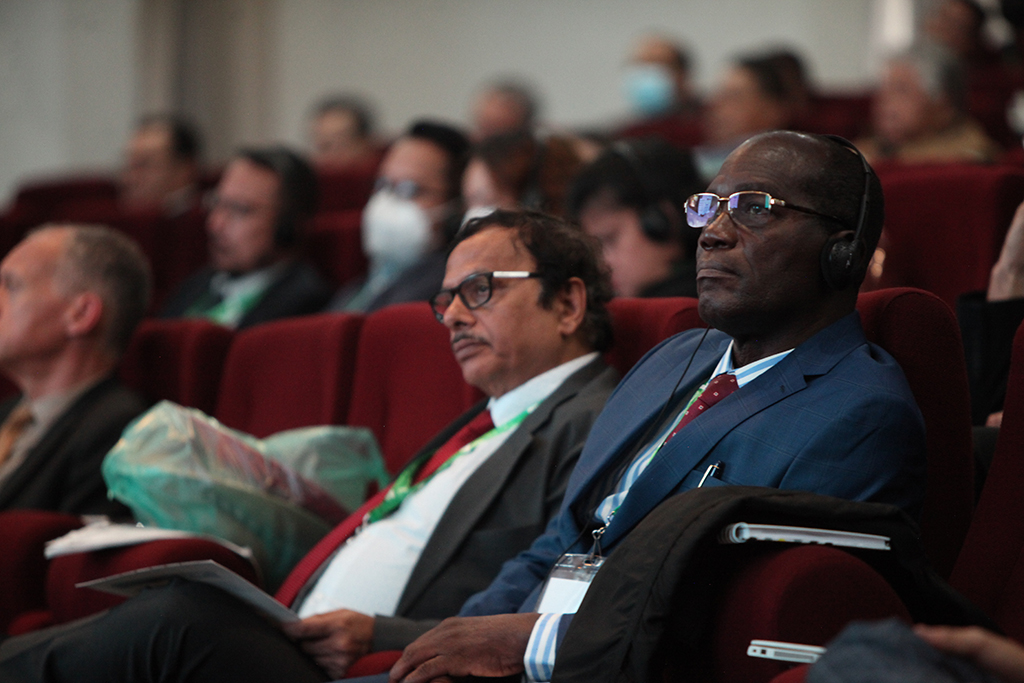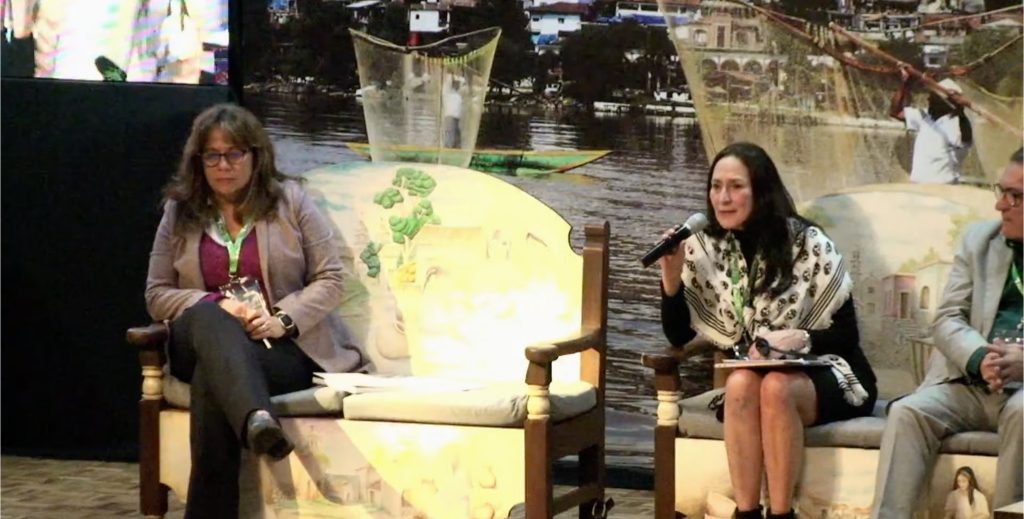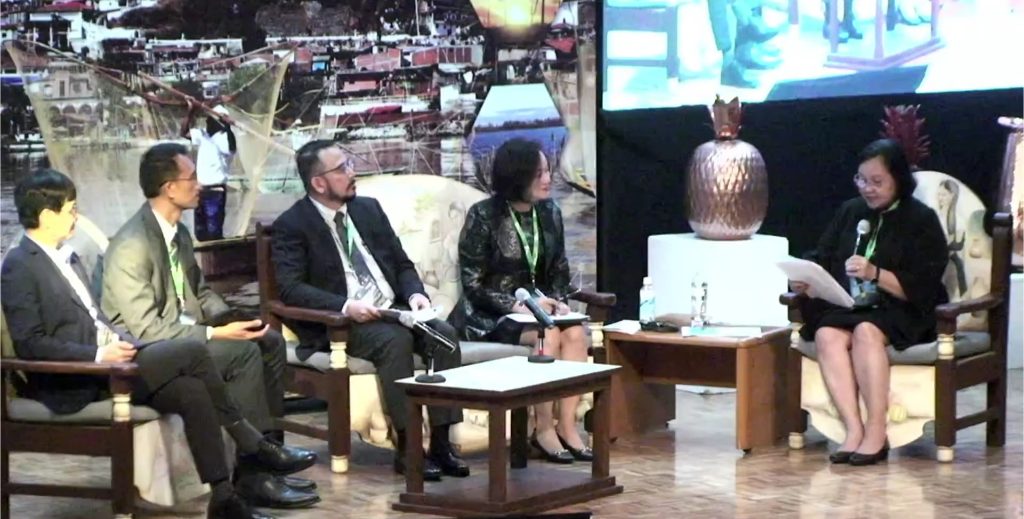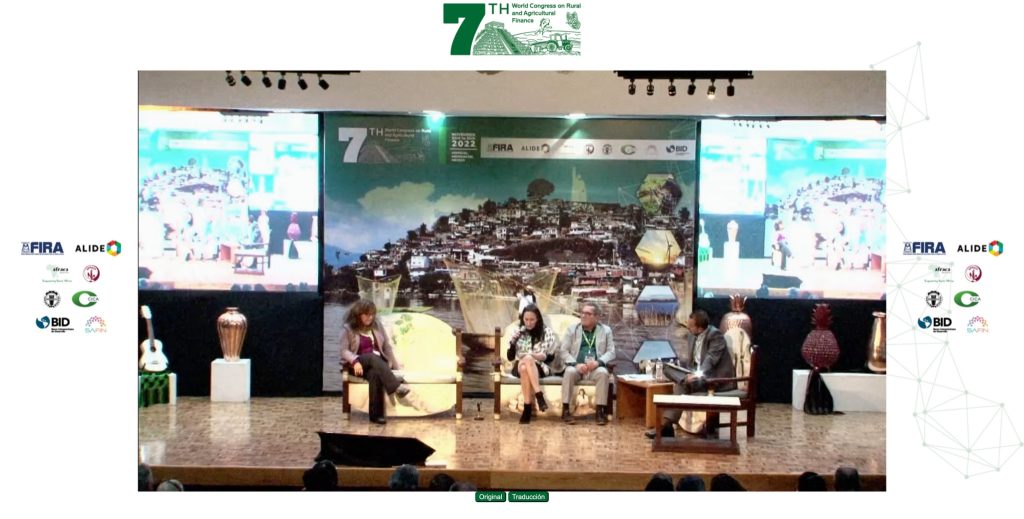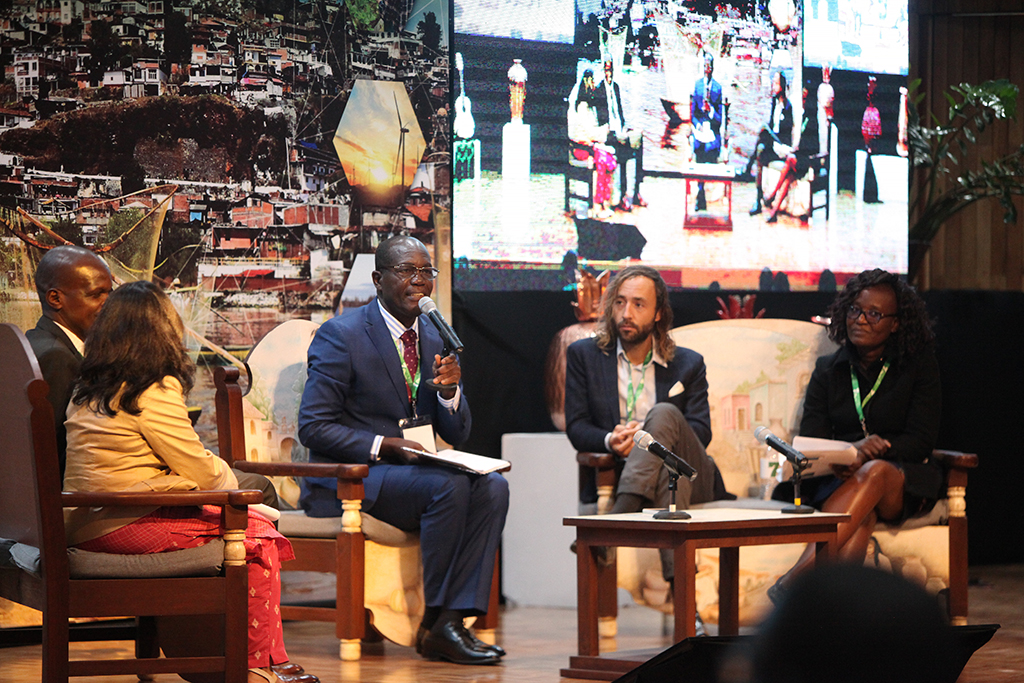
7th World Congress: AFRACA, APRACA and REGAR discuss financing the primary sector
- AFRACA, APRACA and REGAR – Ibero-American Guarantee Network, each chaired one of the three sessions held on the second day of the event.
November 24, 2022- Three sessions took place on the second day of the 7th World Congress on Rural & Agricultural Finance, held in Morelia, Mexico, permitting the discussion of the fishery value chain, inclusive green finances and guarantee systems for agricultural financing.
AFRACA chaired the session entitled “Financing of the value chain of seafood products in Africa: expansion of the blue economy,” in which the importance of oceans was stressed as lying in their food chains and the means for subsistence which they offer to the coastal populations.
AFRACA Secretary General, Thomas T. Essel, analyzed the general situation of fishermen and fisherwomen in Africa and pointed that “if poverty and hunger need to be reduced and gender equality promoted, the only way to do so is by focusing our efforts on the food chain.”
Rachel Karembo, USTDI Projects Coordinator, for her part, explained the gender inequality existing within the fishery sector and shared initiatives put forward to promote women’s employment in this sector, such as the Mayungu High Vision Women Group.
This fourth session of the Congress made it possible to place the situation of the small fishermen and fisherwomen in Africa, particularly in Tanzania and Kenya, in context and to offer a series of recommendations to financial institutions for confronting the gender and environment problems and improving the blue economy.
Inclusive green finance as a critical trigger for a sustainabile agricultural and food system
Climate change today is reducing the productivity of the agricultural industry and altering value chains in many developing regions. High temperatures and extreme climates are jeopardizing agricultural activities at the global level.
The session on green finance was held to discuss this problem, under the chairmanship of APRACA, which grouped together diverse experiences of financial institutions of Asia and the Pacific, as follows: Agricultural and Rural Development Bank, Agribank, DA-ACPC and Bank for Agriculture and Agricultural Cooperatives (BAAC).
Soeng Reth, Executive Director of the Agricultural and Rural Development Bank, explained that the ARDB has been playing a leading role in green finance in Cambodia since 2017, for the purpose of fighting the damaging effects of climate change in the form of heavy rainfalls, high temperatures and rising sea levels.
Given that situation, the ARDB embarked upon the establishment of a green loan policy and the creation of an exclusive department for green finance, for which it expects to obtain accreditation in the long term.
The discussion also centered, as well, on learning the current state of green and climate finance for the agri-food sector. Norman Kraft, DA-ACPC Director, touched upon the importance of the green finance programs of the Central Bank of the Philippines, “Philippine Sustainable Finance Roadmap”; Land Bank of the Philippines, “Go Green Inclusive Financing Program” and Development Bank of the Philippines, “Environment and Climate Change,” for confronting the effects of climate change.
Guarantee Systems as driving forces for agricultural financing
The final session of the global congress on agriculture and finance, under REGAR’s chairmanship, came to an end following a discussion of the guarantee systems for agricultural financing.
The panel session revealed the outlooks for SAECA, Agrogarante – Sociedad de Garantía Mutua, FINAGRO and FIRA, financial institutions that provide guarantees to boost agricultural development.
SAECA President, Pablo Pombo, explained that “finance is a highly important tool in the agricultural, livestock and fishery sector because all sectors have financial needs.”
The President of SAECA went on the stress that his institution, as part of Spain’s guarantee system, has the mission of providing guarantee coverage in order to facilitate access to financing under the best possible terms to the entire production sector, particularly agriculture, livestock and fisheries.
Ángela Penagos, President of FINAGRO, for her part, emphasized that agricultural guarantees in Colombia will be playing a key role in the next few years. She also mentioned that FINAGRO is committed to democratizing agricultural credit through loan lines designed to include the “popular economy.”
About FIRA
The Fideicomisos Instituidos en Relación con la Agricultura, FIRA, are four public trusts in the nature of institutions of the Federal Public Administration, in which the Secretariat of the Treasury and Public Credit operates as trustor and Banco de México as the trustee. Its purpose is to facilitate access to credit by means of loan and discount operations and by granting loan guarantees to agricultural, livestock, poultry, agribusiness, fishery and other related projects carried out in rural areas of Mexico.
About ALIDE
ALIDE is the community of financial institutions that produce banking solutions for Latin American and Caribbean development. Founded in 1968, its main purpose is to contribute to the region’s economic and social development by promoting the use of good development finance practices among its members. It is comprised of more than 80 member institutions operating in over 20 countries of Latin America and other regions of the world.
Contact
Communnication Unit of ALIDE
Phone: +511-203-5520 |: Ext: 227
comunicaciones@alide.org, comunicaciones2@alide.org
www.alide.org







